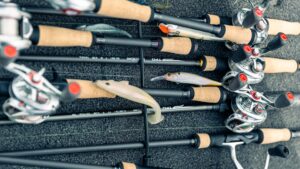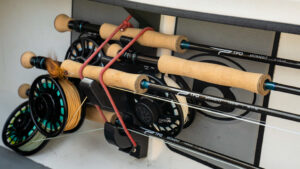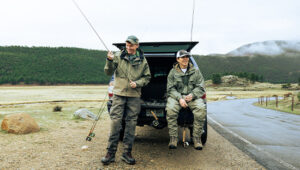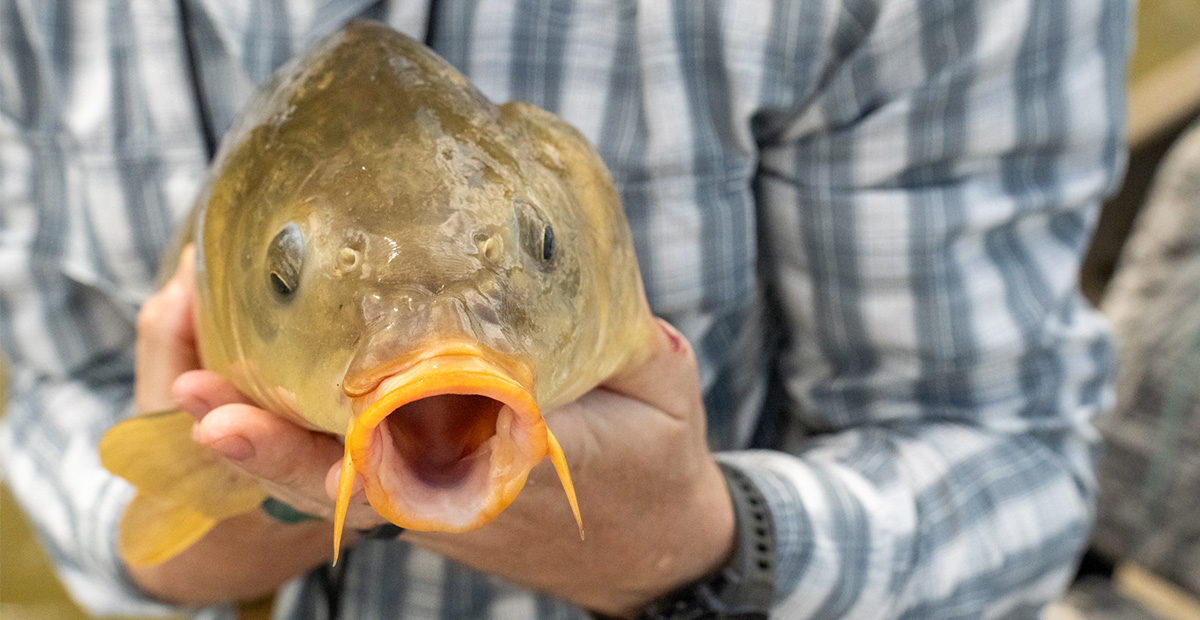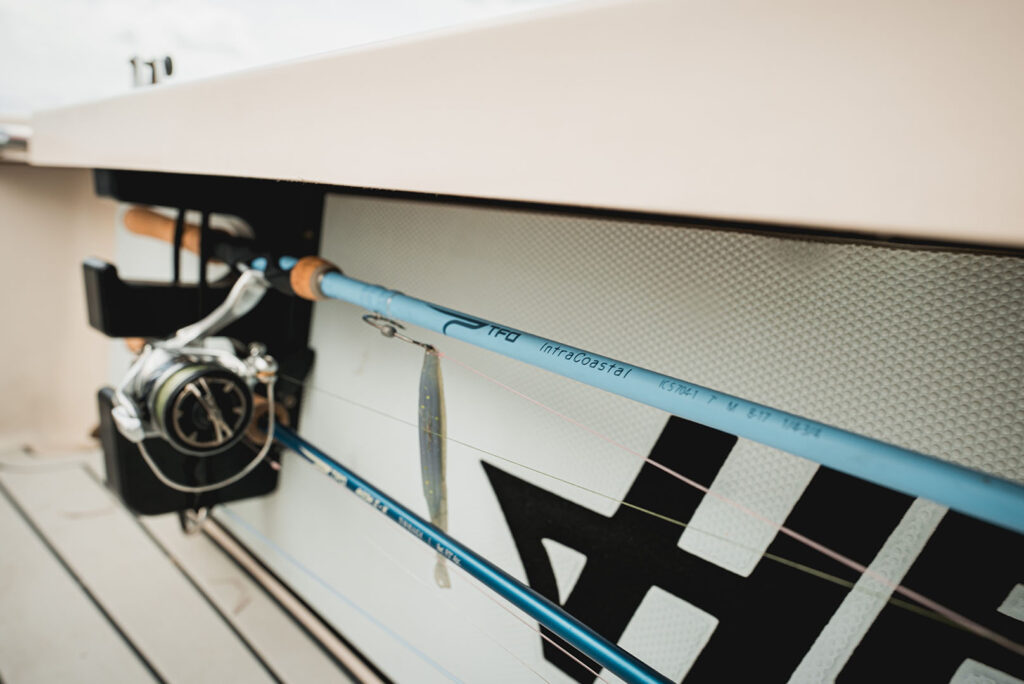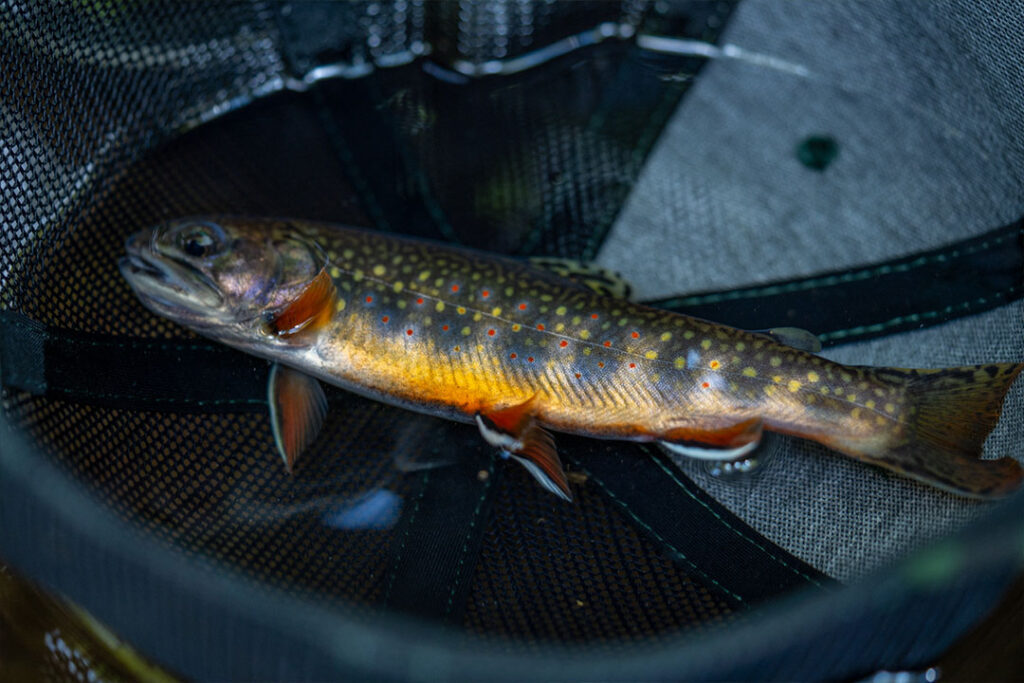The dog days of summer are upon us, and if you’re looking for a fun, challenging, and hard-fighting warm water species to pursue on the fly, look no further than carp fishing.
Carp are an excellent species to target during the dog days of summer for several reasons:
- Adaptability to Warm Water: Carp are well-adapted to warm water conditions and thrive in summer’s higher temperatures. Unlike some species that may become lethargic or retreat to deeper waters in the heat, carp remain active and accessible in the shallows.
- Consistent Feeding Behavior: During the warm months, carp’s metabolism increases, making them more active feeders. This increased feeding behavior presents more opportunities for anglers to target them with various fly patterns.
- Shallow Water Accessibility: In the summer, carp often feed in shallow areas where anglers can easily spot them. They typically search for food along the shorelines, mud flats, and near aquatic vegetation, providing a unique sight-fishing experience.
- High Oxygen Tolerance: Carp can tolerate lower oxygen levels, which often occur in summer’s warm, stagnant waters. This ability allows them to inhabit areas where other fish might be less prevalent, increasing the chances of encountering carp.
- Challenging and Rewarding Fight: Carp are known for their powerful and stubborn fight, making them a difficult target that tests an angler’s skill and gear. Their strength and endurance provide an exciting experience, especially when conditions for other game fish may be less favorable.
- Availability in Various Water Bodies: Carp are widespread and can be found in various water bodies, including lakes, ponds, rivers, and urban waterways. This wide distribution makes them an accessible target during summer, regardless of your location.
- Low Fishing Pressure: Carp are often overlooked by many anglers who focus on more traditional game fish like bass or trout. This can mean less fishing pressure on carp, leading to more opportunities for anglers who choose to target them during the summer.
- Sight-Fishing Opportunities: Summer’s calm, clear waters often provide excellent sight-fishing opportunities. Watching carp tailing, feeding in the shallows, and presenting a fly to them can be an exhilarating and satisfying experience.
Overall, targeting carp during the dog days of summer offers a unique and rewarding angling experience. Their resilience in warm water, with their powerful fight and accessibility, makes carp an excellent choice for fly anglers looking to challenge themselves and enjoy being on the water during the hottest months of the year.

Rods
Selecting the right fly rod is the foundation of successful carp fishing. Given the size and strength of carp, a rod with enough backbone is essential. Here’s what you should consider:
- Weight: A 7 to 9-weight rod is ideal. This range offers enough power to handle large carp and the ability to cast larger flies and heavier lines. For anglers with a bit more experience fighting carp, you could get away with a 6wt.
- Length: A 9-foot rod is standard, providing a good casting distance and accuracy balance.
- Action: Medium-fast to fast action rods are preferred as they offer a good blend of casting power and sensitivity.
Here are a few suggestions from the TFO Lineup:
Beginner: Are you just getting started and need a full setup? Check out the NXT Black Label 8wt kit. It comes with everything you need, minus the flies, which you can pick up at your local shop.
Intermediate: Already got a 5wt and looking for a 7-9wt rod to build your fly rod collection? Check out the Pro III series – a moderate rod that is designed to provide new and intermediate anglers a tool with a wider sweet spot to allow casters to better feel the rod load, understand when it isn’t properly loaded, and refine the steps to properly place a fly in front of a fish.
Advanced: For the advanced freshwater angler looking for a fast-action rod to target carp, bass, and trout (streamers, anyone?), check out the LK Legacy. Additionally, check out the brand-new Solution series for the advanced freshwater angler seeking a premium finish with the respected, high-performing rod. Solution rods are built on a high modulus graphite with a clear coating, feature REC black pearl Recoil guides, and more. Some of our dealers have called the Solution “a masterpiece.” Do yourself a favor and check one out during your next visit to your local TFO dealer.

Reels
There’s no need for a fancy reel when targeting carp, but a reel with a functional drag will be useful when fighting big carp – especially in moving water. The NXT Black Label reel and NTR reel will get the job done.
Leader and Tippet
Carp are known for their excellent vision and wariness, so your leader and tippet setup should reflect that:
- Leader: A 9 to 12-foot leader is generally recommended to keep your fly line from spooking the fish.
- Tippet: Use a strong yet thin tippet, around 8 to 12-pound test fluorocarbon. Fluorocarbon is less visible underwater and more resistant to abrasion.
Flies
Carp are omnivorous, so various fly patterns can work depending on their feeding behavior and the water conditions. Here are some popular options:
- Nymphs: Patterns like the Hare’s Ear, Prince Nymph, and Zug Bug imitate the insects carp often feed on.
- Crayfish and Leech Patterns: Carp love crayfish and leeches, so patterns like the Clouser Crayfish or Woolly Bugger can be very effective.
- Our Pick: John Montana’s Carp Fly—There’s just something about this super simple fly that works great in clear and turbid water. Tie this in various weights and colors to reach fish and adapt to water clarity scenarios.

Where to Find Carp
Carp are generally found in slow-moving or still waters with muddy or weedy bottoms. Here are some places to look:
- Lakes and Ponds: Carp can often be found in the shallows, especially during warmer months. Look for areas with vegetation or muddy flats where they might be feeding.
- Rivers and Streams: Carp are often found in slower sections or eddies in moving water. They also frequent areas with structure, such as fallen trees or undercut banks.
- Urban Settings: Don’t overlook urban waters. Carp are adaptable and can thrive in city ponds and canals.
Techniques for Catching Carp
Spotting and Stalking
Carp are easily spooked, so stealth is crucial. Move slowly and use polarized sunglasses to spot them in the water. Approach from a low angle to avoid casting shadows.
Casting
Once you’ve spotted a carp, cast your fly a few feet ahead of it, allowing the fly to sink to the carp’s level. Carp often feed by sucking in food, so a slow, deliberate presentation is key. Keep your rod tip low and your line taut to detect subtle takes. A successful technique is the drop-and-drag presentation. Here’s a great video from our good friend Rick Mikesell reviewing this technique:
Setting the Hook
When you see the carp take the fly, resist the urge to immediately set the hook. Instead, wait for the carp to turn away, then set the hook firmly. Carp have tough mouths, so a strong hook set is necessary.
Playing the Fish
Carp are strong fighters and will test your gear and skills. Let the fish run, and use your rod’s flex to tire it out. Keep steady pressure and be ready for sudden bursts of power.

Conclusion
Fly fishing for carp is a challenging and rewarding pursuit that tests your angling skills and patience. You can increase your chances of success by choosing the right gear, understanding their habits, and employing the correct techniques. Whether you’re fishing in a serene lake or a bustling urban pond, the thrill of hooking a carp on the fly is an experience that every fly angler should have.

Blog and photos by Tom Wetherington featuring Adam Kennon.
![]()
